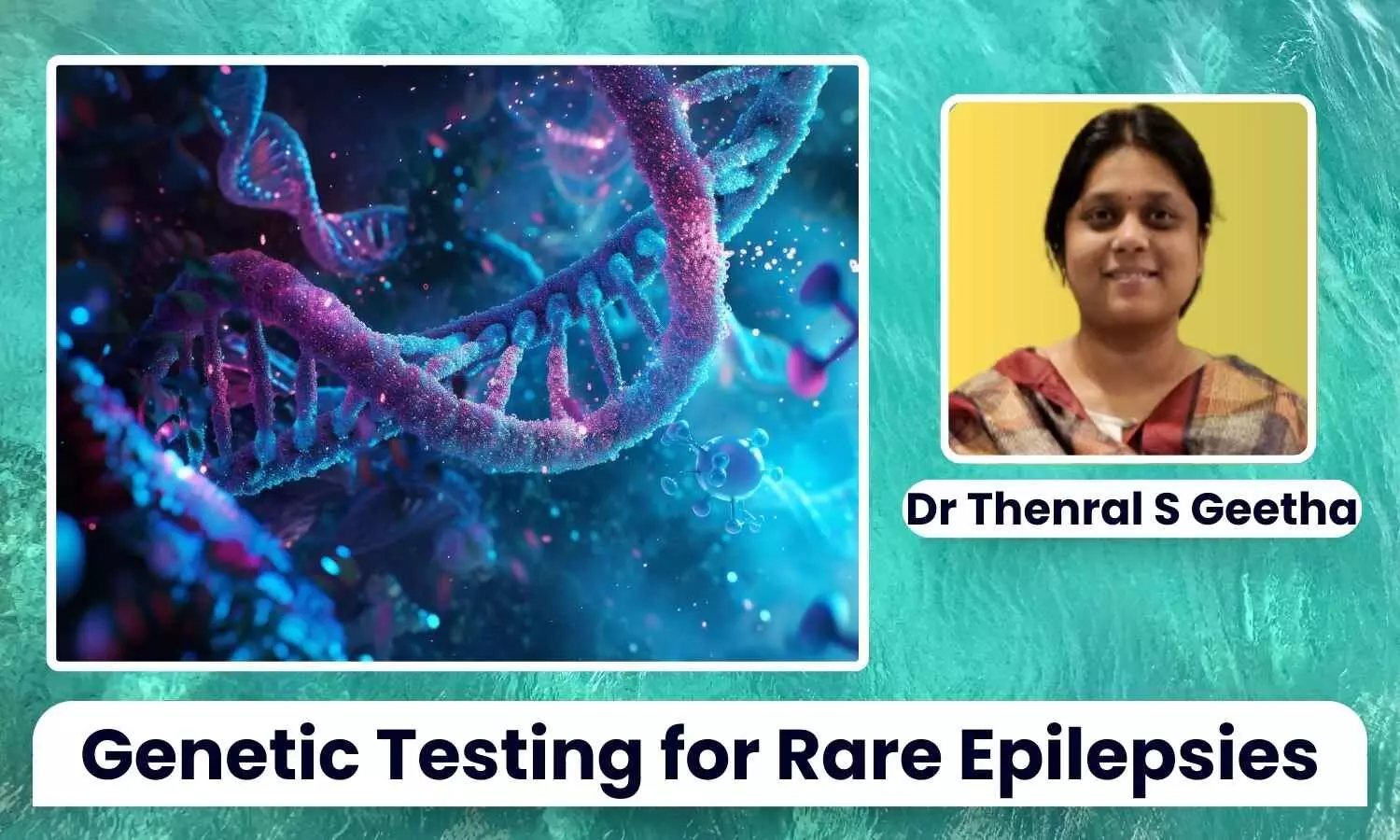Early Genetic Testing Offers Hope for Infants with Rare Epilepsies - Dr Thenral S Geetha

Epilepsy in infants is a complex neurological condition that often demands prompt and intensive management. Globally, an estimated 11 million young individuals, aged less than 15 years, are affected by paediatric epilepsy.
In India, the condition impacts approximately 0.8–1% of children, with nearly 5 million infants born with epilepsy annually. This can be largely attributed to the high consanguinity rates in the country.
Given that a substantial share of the disease burden is inherited, early genetic diagnosis is crucial for efficient disease management and improving long-term outcomes.
Early-onset epilepsy is associated with delay in development, cognitive deficit, and death if undiagnosed and left untreated during infancy and young childhood.
Studies suggest that over 60% of epilepsy cases begin with a first seizure before the age of 18, making early diagnosis and treatment essential. Today, access to a wide range of diagnostic tools has made it possible to identify the cause of inherited disorders at the right time.
A recent case demonstrates how genetic testing was instrumental in identifying a rare variant in the ALDH7A1 gene, which allowed for effective management of symptoms via oral supplementation rather than regular antiepileptic treatments that would have been ineffective due to drug resistance.
How Genetic Testing Helped Identify Rare Genetic Epilepsy
A baby born of a consanguineous marriage exhibited epileptic symptoms from infancy, including various types of seizures and muscle stiffness. The family history revealed delayed intellectual development and suspected pyridoxine-dependent epilepsy in an older sibling.
Initial laboratory tests indicated elevated levels of pipecolic acid in cerebrospinal fluid, though no Inborn Errors of Metabolism (IEMs) were detected through Tandem Mass Spectrometry (TMS) testing.
Genetic analysis uncovered a rare genetic variant in the ALDH7A1 (α-aminoadipic semialdehyde dehydrogenase) gene, which is responsible for early-onset vitamin B6-dependent epilepsy-4.
Biallelic mutations in this gene impair its function, causing an accumulation of toxic intermediates in the lysine degradation pathway. This deficiency, in turn, reduces the active form of vitamin B6, a crucial coenzyme for several cellular processes including amino acid metabolism, neurotransmitter synthesis, and glycogen metabolism.
Impact of Early Diagnosis through Genetic Testing
By identifying the genetic underlying factor, the clinicians were able to initiate targeted oral treatment with vitamin B6, which significantly improved the baby’s progress. The discovery of this rare ALDH7A1 gene mutation sheds light on the diagnosis of similar cases of early-onset epilepsy with a postulated metabolic underpinning.
This case also demonstrates that although rare genetic epilepsies are complex, timely genetic diagnosis can tailor disease management and mitigate serious developmental delays.
Studies have reported about 30-40% of diagnostic yield from genetic testing for patients with epilepsy of unknown factor, and this testing can be particularly helpful in identifying the cause, thus valuable in guiding treatment.
In some cases, therapies fail because of misdiagnosis. This leads to extended hospital admissions and rising health care costs. Delay in diagnosis leads to the growing treatment gap, especially in India, where 90% of individuals suffering from epilepsy do not receive appropriate care despite having viable treatment options.
Role of Genetic Medicine in Paediatric Care
Although promising, genetic testing in India is underutilized, largely because of low awareness and accessibility. Widening newborn screening programs and the incorporation of genetic testing in the standard paediatric assessment can facilitate early diagnosis of treatable disorders.
Recent advancements in genetic research continue to transform the field of paediatric neurology. With tailored treatments available for over 600 genetic diseases, incorporating Whole Exome Sequencing (WES) and Next-Generation Sequencing (NGS) into clinical practice will improve patient outcomes.
In addition to the timely clinical diagnosis and treatment, genetic counselling is also an essential component of paediatric care for rare inherited diseases, guiding families on the process, the interpretation of the test results, and providing emotional support through the journey to help them make informed decisions.
This case demonstrates that precision medicine enabled through genomics can dramatically alter the management of rare neurological disorders, which can be a transforming experience for families and healthcare providers.
The increase in adoption of genomics for diagnosis will ensure that a larger number of children obtain timely diagnosis, reducing the overall healthcare costs and improving the quality of life for the larger population.


